Scania to Power MSRC's Oil Response Vessels
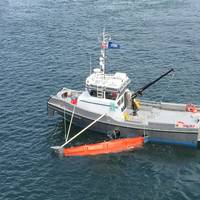
Engine manufacturer Scania on Thursday announced it has been selected by Marine Spill Response Corporation (MSRC) to power its new fleet of five 47-foot Skimmer oil response vessels, built by Rozema Boat Works. Powered by twin DI13 087M 700hp engines provided by Cascade Engine Center, the new vessels will be delivered in 2023.Formed in conjunction with the Marine Preservation Association in 1990 by oil and gas companies, MSRC is a not-for-profit organization with U.S. Coast Guard OSRO classification in every U.S. captain of the port zone except Alaska.
Responder Immunity
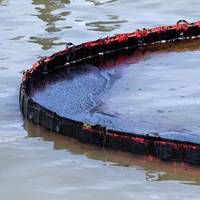
The Federal Water Pollution Control Act (FWPCA – also known as the Clean Water Act), as amended by the Oil Pollution Act of 1990 (OPA 90), contains a responder immunity provision. That provision states, in pertinent part:(A)A person is not liable for removal costs or damages which result from actions taken or omitted to be taken in the course of rendering care, assistance, or advice consistent with the National Contingency Plan or as otherwise directed by the President relating…
Op-ed: Building on Don Young’s Legacy of Protecting Alaska Oceans
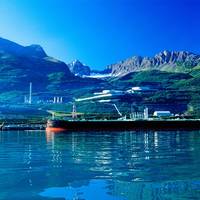
May 22 marks National Maritime Day. Congress established it in 1933 in commemoration of the steam ship Savannah and her maiden voyage, which was the first trans-Atlantic journey ever made by a steam-powered vessel. In the 203 years since the Savannah departed her eponymous port in Georgia for Liverpool, England, oceangoing technology has come a long way – and maritime shipping has become a supply-chain backbone that keeps goods arriving from all over the world. Much of this shipping…
ACBL Found Not at Fault for 2008 Mississippi River Collision and Oil Spill
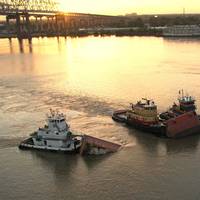
Jeffersonville, Ind.-based barging company American Commercial Barge Line (ACBL) said it has been cleared of any fault related to the 2008 Mel Oliver collision and resulting oil spill on the Mississippi River.The announcement comes after more than 13 years of legal proceedings and is the result of a settlement agreement reached on November 18, 2021, with the U.S. Department of Justice and the State of Louisiana regarding the case.It was determined that fault for the collision and resulting oil spill belongs to Harvey…
Kirby Inland Marine to Pay $15.3M in Damages Over 2014 Oil Spill
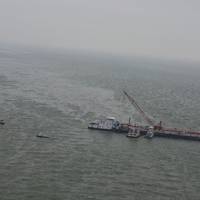
Houston, Texas-based Kirby Inland Marine agreed to pay $15.3 million in damages and assessment costs to resolve federal and state claims for harm to natural resources resulting from a 2014 oil spill from a Kirby barge in the Houston Ship Channel, the U.S. Justice Department said.In a related enforcement action in 2016, the United States secured a settlement with Kirby for $4.9 million in civil penalties and injunctive relief measures to improve the company's operations to help…
ACBL to Pay Over $2 Million for Mississippi River Oil Spill
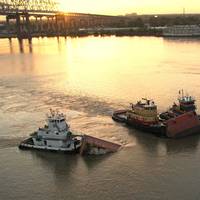
Jeffersonville, Ind.-based barging company American Commercial Barge Line (ACBL) has agreed to acquire and preserve 649 acres of woodland wildlife habitat and will pay an additional $2 million for damages stemming from a 2008 oil spill on the Mississippi River, near New Orleans.The company has already paid $1.32 million to reimburse the federal and state trustees for their past damage assessment and restoration planning costs after one of its barges discharged approximately 6,734 barrels (282,828 gallons) of No. 6 fuel oil into the Mississippi River upriver of New Orleans in July 2008.
Double Hulls and the Oil Spills That Never Happened
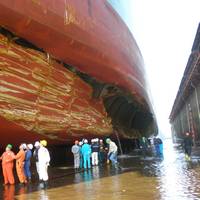
When it comes to marine pollution, often it’s the bad news that makes the headlines. But for every newsworthy incident, there’s another story about the spills and other incidents that didn’t happen thanks to preventative measures and policies, and the responders who think quickly on their feet. In this new blog series, we’re shining a spotlight on the “good news” stories.Looking for a good news story? How about this one: “No spill reported after tug strikes oil tanker in Valdez.” But why is there a story about a spill not happening?We hope…
Marine Salvage and SMFF Regulations
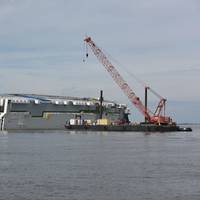
The Federal Water Pollution Control Act (FWPCA, often called the Clean Water Act), as amended by the Oil Pollution Act of 1990 (OPA 90), provides:If a discharge, or a substantial threat of a discharge, of oil or a hazardous substance from a vessel, offshore facility, or onshore facility is of such a size or character as to be a substantial threat to the public health or welfare of the United States (including but not limited to fish, shellfish, wildlife, other natural resources…
Big City Fireboats
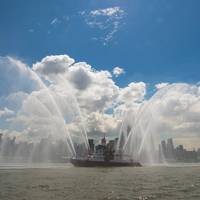
On March 3, the Coast Guard published a notice that Martin Midstream Partners (MMP), a petrochemical transport and storage company, was seeking approval to modify terminal operations in Beaumont, Texas, along the Sabine-Neches Waterway. If approved, MMP would expand its liquefied hazardous gas (LHG) operations, both in volume and products. Instead of just handling ammonia the change would allow shipments of butane, propane, ethane, ethylene and propylene.Critically, MMP’s expansion would increase LHG vessel transit from 24 ships to as many as 350 per year.
Boskalis Buys Salvage Firm Ardent Americas
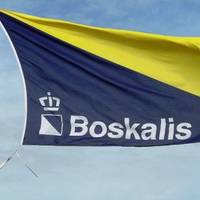
Dutch dredging and marine services giant Boskalis has acquired the U.S.-based maritime emergency response specialist Ardent Americas.Ardent, created by the 2015 merger of salvage divisions of Svitzer and Crowley, specializes in emergency preparedness and response, wreck removals, subsea services and decommissioning for the offshore oil and gas industry. Ardent Americas was a subsidiary of Ardent Global Marine Services, headquartered in IJmuiden, the Netherlands.Boskalis has also…
31 Years Ago Today: The Exxon Valdez Oil Spill
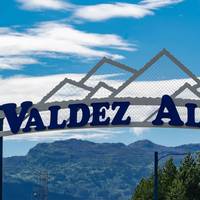
On March 24. 1989, the single-hull tanker Exxon Valdez was departing the Port of Valdez, Alaska with a full load of North Slope crude oil (approximately 1.26 million barrels) destined for Long Beach when it grounded on Bligh Reef in Prince William Sound. The resulting oil spill (approximately 258,000 barrels), while not the largest in US history, was clearly the most important. It engendered much litigation. Public concern over the spill led directly to enactment of the Oil Pollution Act of 1990 (OPA 90)…
OP/ED: Smoother Sailing

Consistent Regulations Critical to Maritime Commerce, American Prosperity.“The ease of moving people and cargo on America’s waterways is a competitive advantage and wellspring for economic prosperity and national security,” states the U.S. Coast Guard’s Maritime Commerce Strategic Outlook, released last fall by ADM Karl Schultz, Commandant. The owners and mariners of the vessels that ply our nation’s waterways, transporting the commodities that power the American economy, are a vital component of that prosperity and security.
HazSub Spill Response Plans
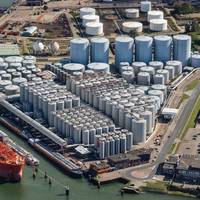
On August 18, 1990, the Oil Pollution Act of 1990 (OPA 90) was enacted into law. Section 4202 of that Act amended the Federal Water Pollution Control Act (FWPCA or Clean Water Act) to require tank vessels and marine transportation-related facilities to prepare and submit to the US Coast Guard plans for responding, to the maximum extent practicable, to a worse case discharge, and to a substantial threat of such a discharge, of oil or a hazardous substance carried in bulk as cargo.
Navigate Response Launched Unlimited Hours Contracts
Navigate Response, the global crisis communications network for the maritime sector, is introducing unlimited response hours contracts to help its shipping company clients manage the potentially open-ended costs of media management work during a crisis.Navigate Response Director Bill Lines said: "Through a small premium on Navigate Response's standard media response contracts, companies can manage their risk profile by choosing a plan which guarantees an unlimited response from our crisis response teams headquartered in London and Singapore."Whether the threat is from cyber, piracy, pollution or an environmental lobby, it is vital that our clients have the support to respond as actively as it takes…
SMIT Salvage Bags US Navy Contracts
SMIT Salvage has acquired two five-year marine salvage contracts to serve as the exclusive marine salvage and engineering support contractor for the Naval Sea Systems Command (NAVSEA), the division of the U.S. Navy responsible for engineering, building, buying and maintaining Navy ships and submarines.The Royal Boskalis Westminster N.V. subsidiary will provide the U.S. Navy with marine salvage, salvage-related towing, ocean engineering and towage services in the event of an emergency or incident in two of the three geographic zones in the world as defined by the U.S. Navy.SMIT Salvage held a contract for one zone covering the area between the Suez Canal and the international date line for a number of periods totaling more than 30 years, which it was able to renew.
The EPA's Clean Water Act and Understanding VGP
The Vessel General Permit (VGP) falls under the National Pollutant Discharge Elimination System (NPDES) of the Federal Water Pollution Control Act (FWPCA), better known as the Clean Water Act. It is administered by the US Environmental Protection Agency (EPA), an agency not well known or understood by the maritime industry.For years, the EPA had adopted a policy of broadly exempting discharges into the water that were incidental to normal operation of vessels. That changed after environmental advocacy groups prevailed in a judicial challenge. The first iteration of the VGP entered into effect in 2008 and remained in effect until replaced by the current iteration in 2013.
An Unlikely and Remarkable Safety Journey
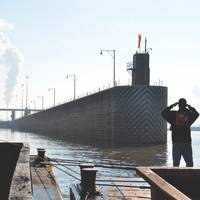
Late last year, the Transportation Research Board released a major study that was undertaken “in response to the rapid development of domestic sources of energy and questions about the safest ways to move these products.” The Study Committee examined the operational responses of the three primary modes impacted by the fracking revolution – rail, pipeline and maritime. A primary observation of this work was that that the “Marine Transportation System Offers a Model for Robust Safety…
US Salvors Pass USCG Verifications
On April 18, Rear Admiral Anthony “Jack” Vogt, Assistant Commandant for Response Policy, released an update on the status of the most recent U.S. Salvage and Marine Firefighting (SMFF) industry verification initiative. According to the report, the Coast Guard has conducted 58 scenario-based SMFF verifications within the last year across 19 different Captain of the Port Zones, with 16 different vessel owners and operators. To date, all results have been found to be satisfactory and reflect compliance with the Coast Guard’s Salvage and Marine Firefighting regulations. “The latest report from the Coast Guard on the marine salvage industry’s…
Spill Prevention & Response: Old Lessons, New Challenges
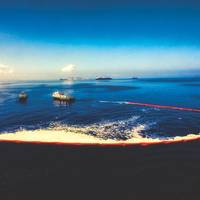
Emerging spill response trends fit into two big categories: technology and a combination of economic and social forces. Both will shape what comes next.Florida’s stunning Tampa Bay stands out as exactly the kind of place where you have to think about hazardous materials emergencies. It was 25 years ago, on August 10, 1993, that a freighter collided with two barges near the entrance of Tampa Bay, causing a fire and spilling over 32,000 gallons of jet fuel, diesel, and gasoline and about 330,000 gallons of heavy fuel, devastating beaches, wildlife and habitat.
Vessel Response Plans: A Primer for the US Waterfront
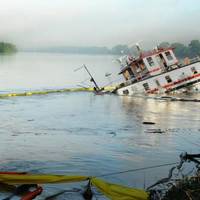
Congress enacted the Oil Pollution Act of 1990 (OPA 90) a mere 17 months after the disastrous oil spill following the grounding of the tanker Exxon Valdez in Prince William Sound. Among the many provisions in the voluminous bill was a detailed planning requirement. For the first time, tank vessels and facilities handling oil in bulk were required to develop extensive plans for responding to a worst case discharge of oil into waters of the United States. As regards vessels and marine-transportation-related facilities, the U.S.
Salvage and Marine Firefighting
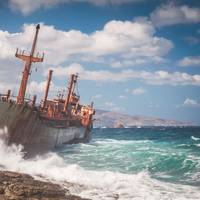
Salvage and marine firefighting are complex response efforts often undertaken in adverse weather and sea conditions. While no two oil spill responses are the same, the diversity of variation between any two oil spill responses is not near as great as the diversity of any two salvage and marine firefighting responses. As a result, salvage and marine firefighting response providers must plan for and anticipate a wide range of variation in what will be required to address their portion of a marine casualty. The U.S.
Montgomery McCracken Names Two Maritime Attorneys to Firm Partnership

Montgomery McCracken announced it has named attorneys Robert E. O’Connor and Davis Lee Wright to the firm’s partnership. O’Connor, located in the firm’s New York office, was previously an associate. Wright, who is located in the firm’s Wilmington office, was of counsel. O’Connor is a general litigator and a member of the firm’s Maritime and Transportation practice group. He represents insurers, owners and operators of vessels, and marine fuel suppliers among others. O’Connor also…
#BTC100 History
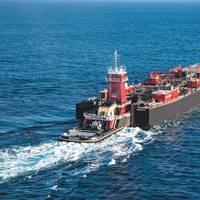
In 1992, Bouchard Transportation faced new challenges resulting from the newly enacted Oil Pollution Act of 1990 (OPA 90). Now headed by the fourth-generation Morton S. Bouchard III (Morton S Bouchard Jr.’s son), BTC once again leads the industry as the first company to build several new 138,000 barrel double hull barges, along with technologically advanced 6,140 horsepower tugboats to move these 400+ foot barges. As of 2018, BTC’s B. No. 245 is the first double hull barge of this kind ever built, which is larger than 250,000 barrels.





